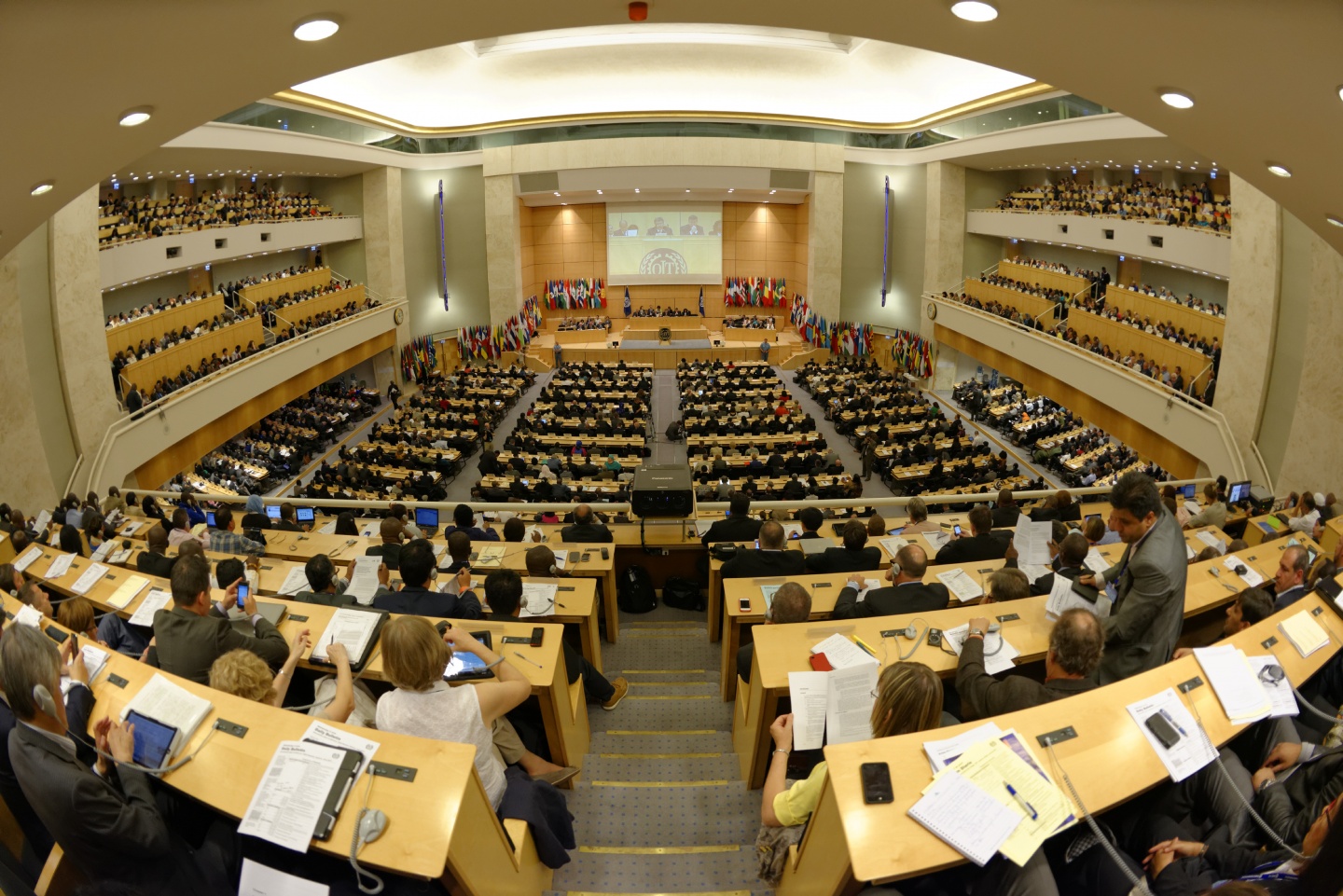4 May, 2018The 187 member states of the International Labour Organization meet every year in June at the International Labour Conference (ILC) in Geneva, Switzerland.
Who goes to the International Labour Conference (ILC)?
Every member state can send a delegation consisting of:
- Two government delegates
- One worker delegate
- One employer delegate
Each delegate has one vote in the Conference plenary. Delegations also include advisers but they do not have voting rights.
The worker delegates are invariably drawn from national trade union centres, while government delegates are often Ministers of Labour. Heads of State or Prime Ministers also visit the Conference. International organizations, such as IndustriALL Global Union, attend as observers.
Setting standards
The International Labour Conference adopts ILO Conventions and Recommendations, which are drawn up by representatives of governments, workers and employers. Conventions are legally-binding international treaties that can be ratified by member states. Recommendations are non-binding guidelines. A Convention needs majority support of two-thirds of voting parties at the Conference for it to be adopted. Once adopted, member states are required by the ILO Constitution to submit them to the relevant authority, usually their parliament, for consideration for ratification.
Supervisory role
All member states must issue a report to the Conference detailing how they are complying with the ILO’s core Conventions and Recommendations (ratified or not) every three to five years depending on the Convention.
The Committee of Experts was set up in 1926 to examine the growing number of these reports. The Committee is made up of eminent jurists appointed by the Governing Body for a period of three years.
The annual report of the Committee of Experts is usually adopted in December and submitted to the Conference in June, were it is examined by the Conference Committee on the Application of Standards.
What is the Conference Committee on the Application of Standards (CAS)?
The CAS is an essential part of the ILO’s supervisory system in that it checks how ILO standards are being applied by member states. The CAS is made up of representatives of government, employer and worker delegates and is a standing committee of the International Labour Conference.
Worker group representatives negotiate with employer representatives to establish a list of around 20 countries where there are serious violations of ILO Conventions they have ratified. Governments are invited to respond and provide information on the issue in question and the cases are discussed in the plenary of the Conference.
The preliminary list of 40 cases for possible discussion at the 2018 CAS (long list), as prepared by the social partners, is now available on the ILO website. Out of those cases, 24 will be selected for the CAS discussion.
The CAS makes recommendations to governments to take action to resolve issues, and can advise the ILO to carry out fact-finding missions or provide technical assistance.
The CAS publishes its conclusions every year in a report.
Global Report
The International Labour Conference examines the Global Report, which is prepared by the International Labour Office as a requirement of the Declaration of Fundamental Principles of Rights Work. Over a four-year cycle, the Global Report examines the ILO’s four fundamental rights which are:
- Freedom of association and the right to collective bargaining (Conventions No. 87 and 98)
- The elimination of forced or compulsory labour (Conventions No. 29 and No. 105)
- The abolition of child labour (Conventions No. 138 and No. 182)
- The elimination of discrimination in respect of employment and occupation (Conventions No. 100 and No. 111)
Setting policy and a forum for discourse
Delegates to the International Labour Conference pass resolutions to provide guidelines for ILO policy and activities. Every year, the Director-General of the ILO (currently Guy Ryder) presents a report to the Conference, which is often the basis for discourse. In 2017, the theme is: Working in a changing climate: The Green Initiative.
Why is the ILC important for trade unions?
The International Labour Conference brings together workers, governments and employer representatives on an equal platform. Through the workers group, national and global trade unions can influence government and employers’ policies, for example in the drafting of Conventions, and also in the monitoring of their implementation in member states. The Conference is also important to trade unions because:
•It is a chance to hold governments to account for labour abuses in their countries.
•It gives cases of labour rights abuses an international platform.
•It can help to resolve violations by making recommendations for action to governments and through sanctioning technical assistance to member states.
For more information go to www.ilo.org


